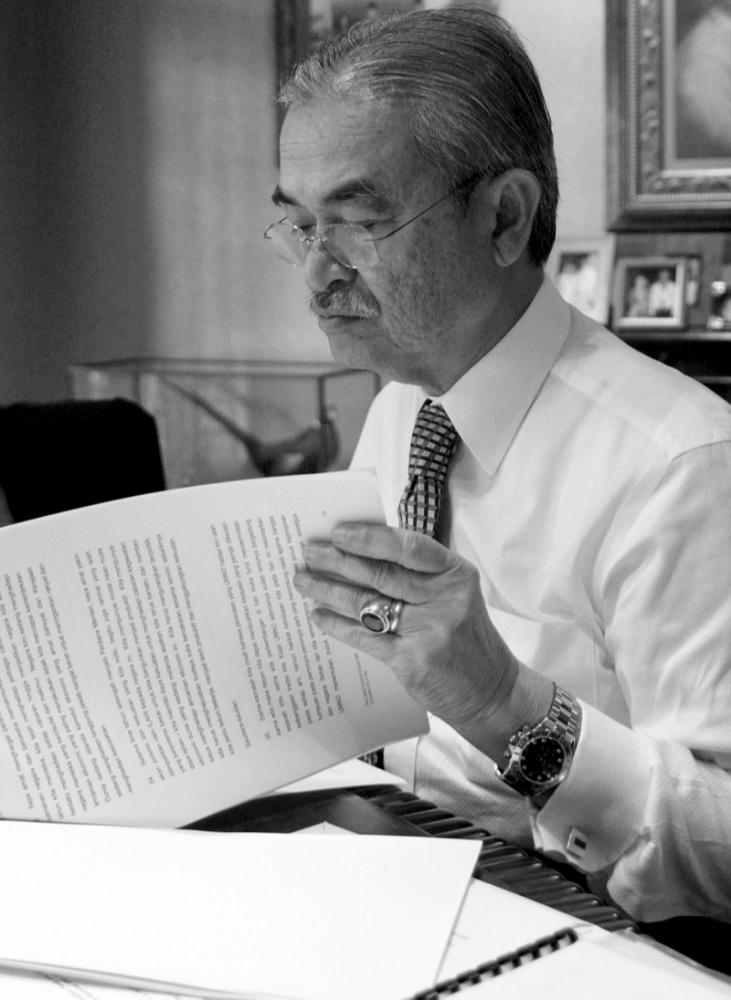PETALING JAYA: The passing of Malaysia’s fifth prime minister, Tun Abdullah Ahmad Badawi on Monday marks the end of an era defined by moderate leadership and reformist aspirations.
Nusantara Academy for Strategic Research political analyst Prof Dr Azmi Hassan said Abdullah’s most enduring legacy was his ability to maintain peace and calm amid immense political pressures during his tenure.
“Abdullah was approachable and open to dialogue. His composed and gentle leadership style helped preserve political stability and fostered a sense of harmony in the country. In today’s political climate, leaders with such qualities are increasingly rare,” he told theSun.
Affectionately known as Pak Lah, Abdullah took office in 2003 and quickly distinguished himself through sincerity and compassion – traits that left a lasting impression on those who experienced his leadership.
Azmi said a cornerstone of his administration was Islam Hadhari, a progressive interpretation of Islam that sought to build a balanced, ethical and modern society rooted in Quranic principles. The philosophy emphasised moral excellence and integrity not only at the individual level but within institutions.
“Pak Lah’s anti-corruption efforts were strongly tied to this philosophy. In addition to initiating the establishment of the Malaysian Anti-Corruption Commission (MACC), he made integrity a national priority.”
On the economic front, one of Abdullah’s significant contributions was the creation of regional economic corridors, said Azmi.
“He envisioned the corridors as means to bridge development gaps, especially between the East and West coasts of Peninsular Malaysia, as well as between the peninsula and East Malaysia. Today, we see tangible growth in these regions as a result of his vision.”
Although he maintained a low profile after stepping down, Pak Lah is remembered not just as a political figure, but as a true statesman whose values are deeply missed.
“Pak Lah was known as ‘Mr Clean’ due to his firm stance on eradicating corruption and promoting efficient governance. He was also a strong advocate for human capital development. He believed that good governance must begin at the grassroots, and that public servants should be competent, ethical and dedicated to national progress,”
Azmi said.
He also said Abdullah made a profound personal sacrifice when he stepped down as prime minister and handed over power to Datuk Seri Najib Razak.
“He recognised the importance of a peaceful and orderly transition. More importantly, he never interfered with the government after his resignation. That is a legacy in itself, and a testament to the kind of leader he was.”
Political analyst Prof Datuk Dr Sivamurugan Pandian described Abdullah as a leader who encouraged public participation and adopted an inclusive and accommodating leadership style.
“His approach – a ‘change in continuity’ – balanced reform with stability. His openness was evident in many of his decisions.”
He said Abdullah faced inevitable comparisons after taking over from Tun Dr Mahathir Mohamad, who had served for 22 years, but yet he led Barisan Nasional to a resounding victory in the 2004 General Election, winning 198 out of the then 219 parliamentary seats.
“He applies soft diplomacy to approach any issue – prioritising consensus, negotiation and dialogue – rather than being autocratic.”
Sivamuragan said while some perceive Pak Lah’s gentle approach as a weakness, it actually led towards the betterment of the nation which had nurtured a values-driven society rooted in integrity that was paramount during his tenure as PM.









